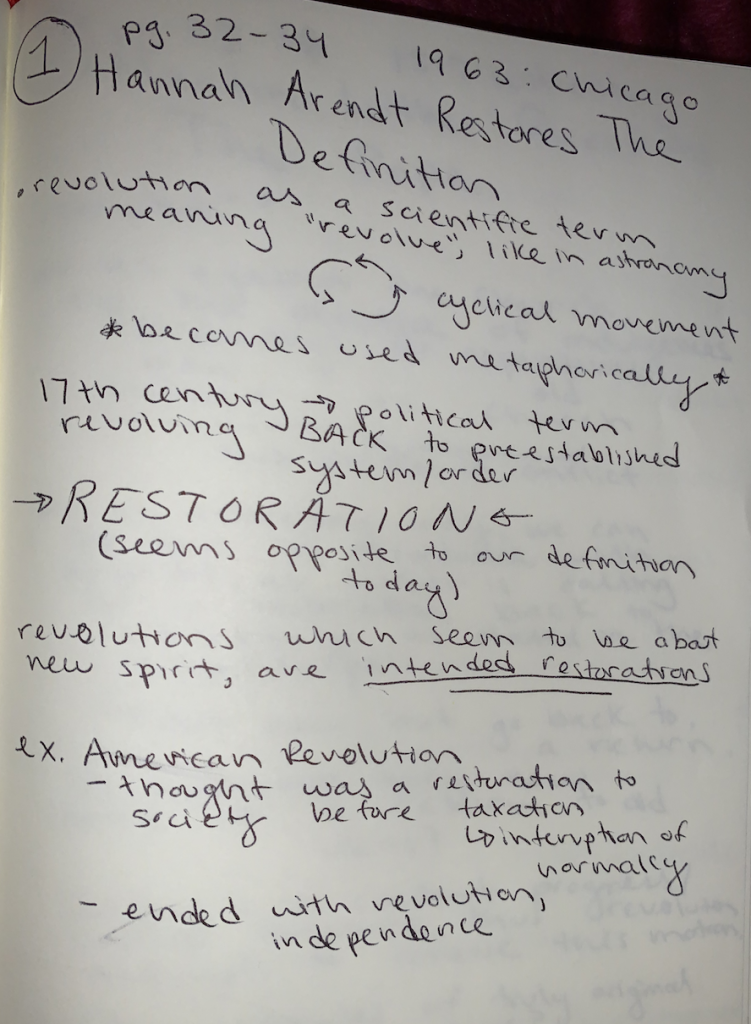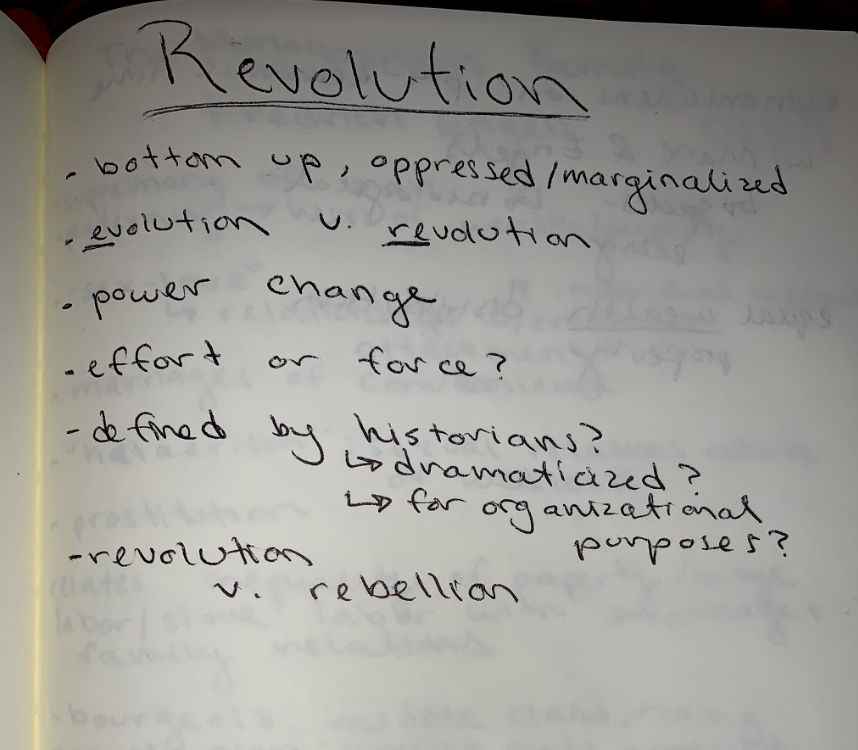Unit 2 provided the clearest definition of a revolution this far in Humanities which is my starting point in my own definition. Professor Robb defined a revolution as a “paradigm shift” or a change in conceptual schemes. Below are images from my notebook that describe a paradigm shift.
In this definition, a revolution occurs when one conceptual scheme shifts to a new conceptual scheme. For example, during the Scientific Revolution, new technology and research prompted new ideas regarding the universe. This can be considered a revolution, as the worldview in society shifted.

Lapham’s Quarterly pages 32-34
After reading Lapahm’s Quarterly over the fall break, two articles helped me define revolution. The first, on pages 32-34 is an essay titled, On Revolution by Hannah Arendt. The second, on pages 35-36 is an excerpt from Martin Luther’s Ninety-Five Theses. (My notes on these readings are displayed to the left.)

Lapham’s Quarterly pages 35-36
These readings conflict with the definition of revolution as a paradigm shift. Revolution as a paradigm shift is a new idea shifting the conceptual scheme. Instead, Arendt and Luther argue that revolution is a restoration of a previous conceptual scheme. For example, Arendt says that the American Revolution was a movement to restore the rights that the King of England had taken away from the American colonist. In a similar way, Martin Luther’s Protestant Reformation was a religious revolution that was against the Church’s use of indulgences and an effort to return to the Christianity that is stated in the Gospels. Is a revolution a new idea or a return to a previous idea?
One historical example that argues against Luther and Arendt is the Haitian Revolution. This example is also featured in Lapham’s Quarterly (53-54) and was a topic of discussion in Professor Wills’ Unit. The Haitian Revolution was said to have been completely unexpected and unprecedented. At the time that it occurred, the colonial leaders in Haiti had a different conceptual scheme than the slaves that revolted. The letter to the colonial leaders by Georges Bissou, Jean-Francois, and Toussaint L’Ouverture states, “we are your equals” which was a revolutionary thought at the time. If a revolution is a return to a previous conceptual scheme, how could the slaves have fought for such a new and revolutionary concept?
Brainstorming the Definition of Revolution in my Notebook:


